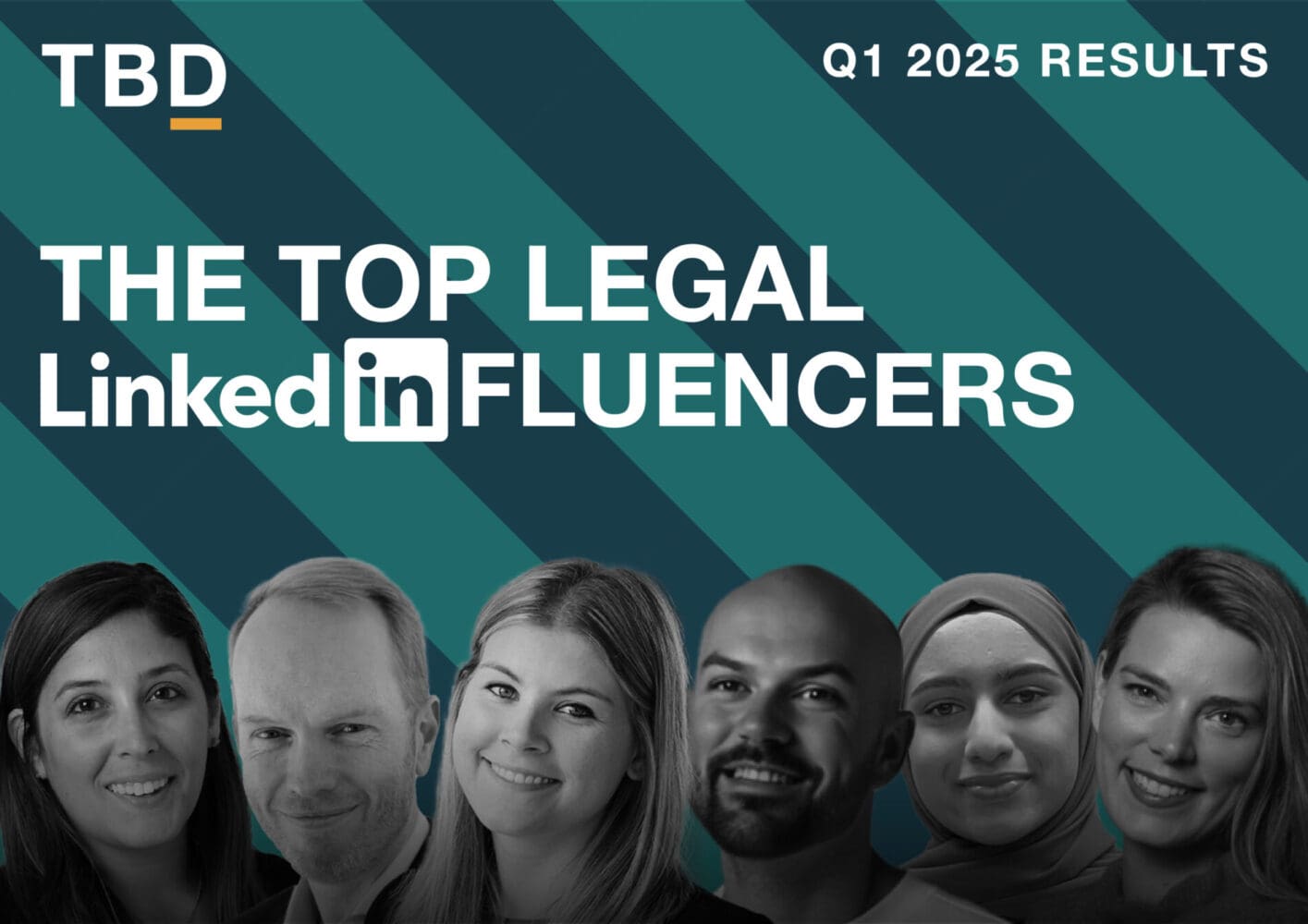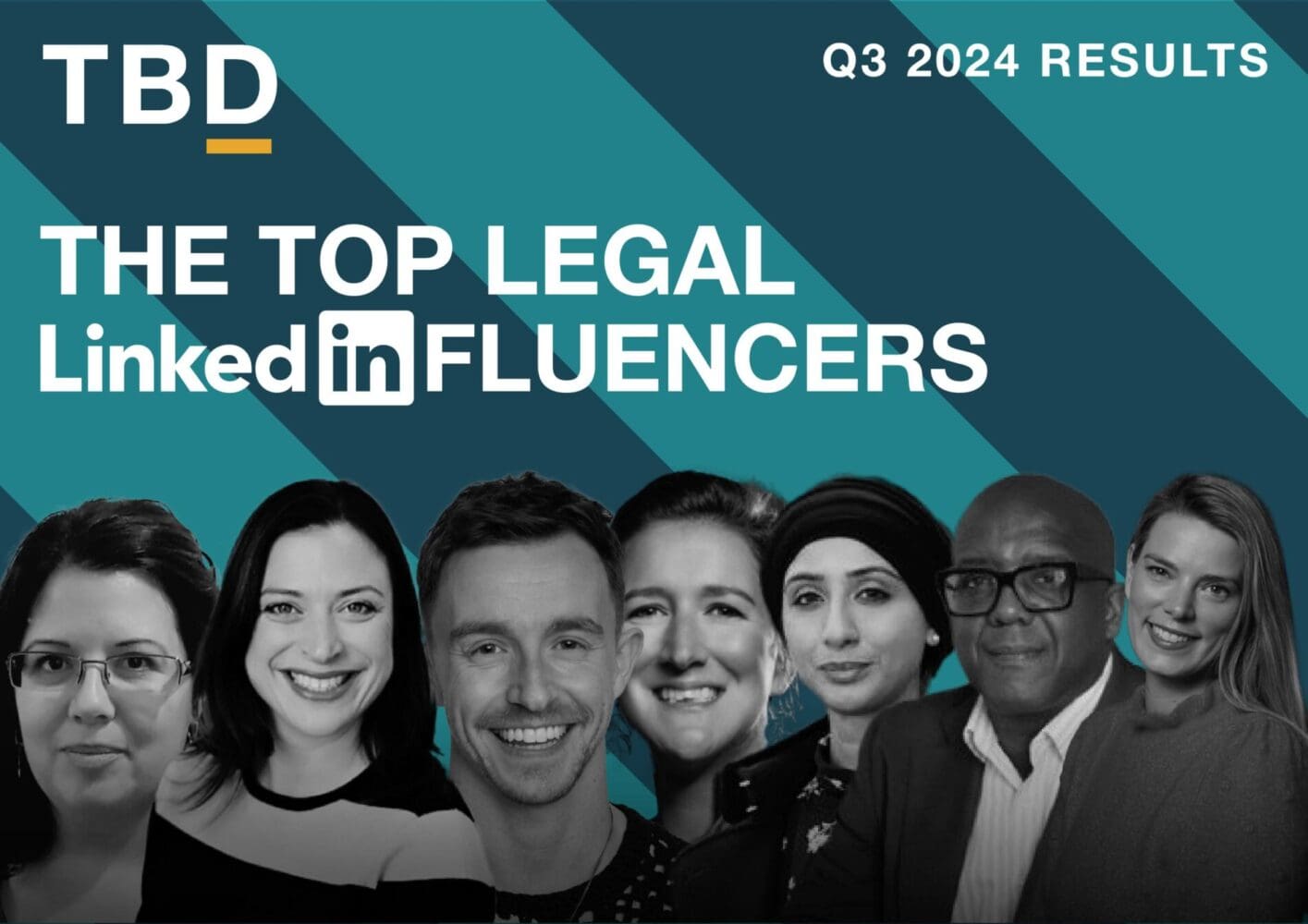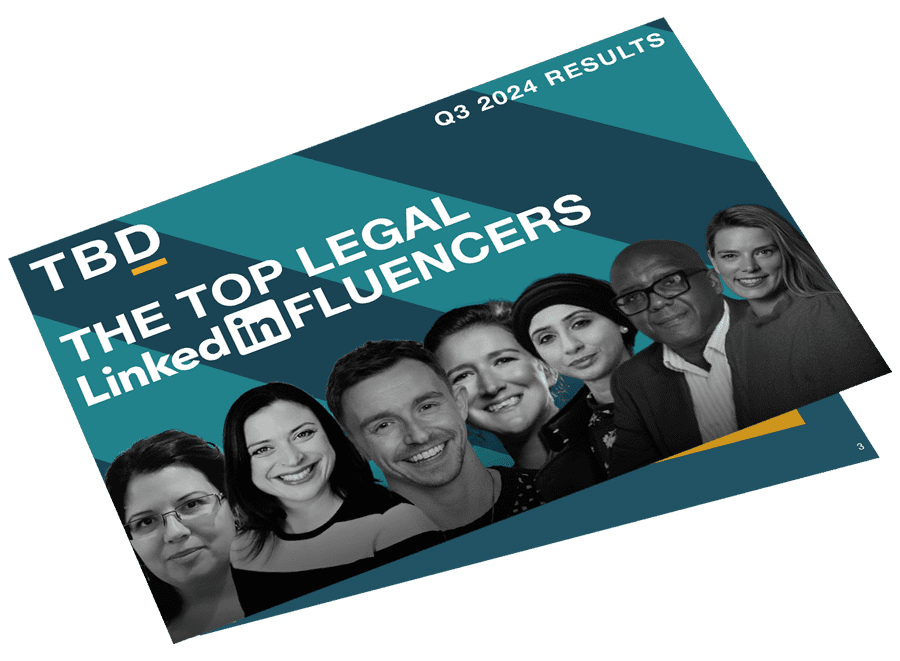The B all and end all when it comes to ESG certifications
We are rapidly nearing the end of B Corp Month, where the global community of over 8,000 B Corps comes together “to celebrate what it means to be a B Corp, build awareness of the movement and educate diverse audiences on the importance of transforming our economic system for the better”, according to the B Corp website.
So what better way to bring March to a close than with an edition of Si’s Matters dedicated to examining the growing importance of B Corp certification within the legal sector, enriched with voices from some of the select few firms that have achieved the hallowed status of B Corps?
What exactly is a B Corp?
In the unlikely event that you are unfamiliar with the B Corp movement, here is a nutshell summary: set up in 2006 by B Lab, an international non-profit network of organisations, the B Corporation (universally abbreviated to B Corp) certification allows companies to prove to external stakeholders that they meet high standards of social and environmental performance, transparency, and accountability.
The accreditation process is rigorous and intensive, often taking many months to complete. It also involves a legal commitment on the part of the companies that apply, necessitating them to “change their corporate governance structure to be accountable to all stakeholders, not just shareholders, and achieve benefit corporation status if available in their jurisdiction”.
And certification is not a one-off process, either, as certified B Corporations must recertify every three years “to demonstrate a continuous improvement mindset”. It is, therefore, clear to see why B Corp certification is widely regarded within the corporate world as the non plus ultra when it comes to demonstrating a company’s ESG bonafides, given the near-Herculean efforts involved in obtaining it.
ESG in the legal sector: the future is bright, the future is B Corp
There are currently only around 20 legal services providers in the UK that are B Corp-certified, ranging from large firms such as Freeths (the only B Corp-certified firm in the UK top 50), to smaller firms, boutiques and consultancies including Cripps, Artington Legal, and, as of yesterday afternoon, Ignition Law.). It is, as yet, a relatively small number, but it is only going to grow in the coming months and years.
Why? Because B Corp certification serves as a shorthand answer to a lot of probing and difficult questions that law firms increasingly find themselves confronted with. Put it this way: if your firm holds what is arguably the most rigorous and widely recognised ESG credential out there, this does a lot of the talking for you when it comes to proving that you have the right formula for solving the People / Planet / Profits equation.
It thereby also serves as something of a bullet-proof shield against accusations of greenwashing, given the well-known fact that B Lab’s auditors apply a very fine-toothed comb when reviewing a firm’s application: it is not a process to be embarked on lightly, and those firms that do apply must be in no doubt that their values and practices truly align with the B Corp ethos and standards – otherwise they can find themselves in something of a PR pickle, as Mishcon de Reya learned to its cost a couple of years ago.
For these reasons, B Corp certification is therefore more immediately effective and convincing than any amount of copy on a firm’s ESG-related webpages, because it proves that you not only talk the talk, but also demonstrably walk the walk. And this will only become more important as we move further into the 21st century, with all its pressing problems that demand a change to the status quo in how the world does business.
We are therefore likely to see a cascade effect in the legal sector, as the current early-adopter phase – which began in 2015, when Bates Wells became the UK’s first B Corp-certified law firm – gives way to the early-majority and late-majority stages, when those firms that are already certified inevitably come to increasingly demand that their suppliers and subcontractors are also B Corps if they want to remain first-tier providers or be appointed to the respective firm’s panel.
Certification will also inevitably act as a magnet for top-tier talent – we are already seeing this happen, in fact, as Sophie Pender, one of the most influential young lawyers in the UK today, joined Bates Wells from Herbert Smith Freehills last year because her values align so much with those of the firm.
So, by the time that firms find themselves getting rejected from panels, missing out on their preferred hires and being asked difficult questions by clients about how truly committed they really are to ESG, B Corp certification will go from being a distant aspiration to becoming an imperative if these firms don’t want to find themselves permanently left outside in the cold.
Putting our money where our ESG credentials are
Here at TBD Marketing, we’re acutely aware that we must take our own advice, and are beginning to eye up the B Corp certification process. It was a source of some embarrassment to us that, when compiling our recent Web Carbon Footprint report on the UK’s top-200 firms, we realised that our own website only rated a Grade F. This is something that we are now working to rectify asap as a starting point to ultimately becoming a B Corp – because our clients will come to expect it of us, and because we already expect those high standards of ourselves.
Our house rule is to never ask of lawyers something that we’d not be willing to do ourselves so… it is now firmly on our radar.
B Corps in their own words
We reached out to some of our friends to give us the inside scoop on their thought processes behind becoming B Corps, what the accreditation process involves, and lessons they have learned along the way.
What were you hoping to achieve by becoming a B Corp?
Rebecca Severn, Head of Operations at Artington Legal:
“We are an innovative law firm that has a great team of motivated employees. We are committed to their engagement, and work with a team from diverse backgrounds. We are small, but want to show the world that we are not purely focused on profit and that our team, our clients and our community are important to us. By becoming a B Corp, we will be recognised as being transparent and accountable as well as people recognising that we have had to meet high standards of social and environmental performance.”
Rachel Smith, Director Of Marketing And Business Development at Cripps:
“Clarity on our business impact and an objective framework for measuring our purpose and continuing to improve what we do for people, planet, clients and community.”
Florence Brocklesby, founder and principal of Bellevue Law, which is in the process of being accredited:
“Bellevue Law has always been purpose driven and committed to ethical business practices. In deciding to seek B Corp accreditation, we are making a public commitment to maintain this focus and continually improve our ESG impact, as well as joining a community of like-minded businesses. And in a world where green-washing and purpose-washing make it hard to know how sustainable a business really is, we consider B Corp accreditation to be a mark of trust and authenticity.”
Alex McPherson, Founder & Partner at Ignition Law:
“Increasingly we’re finding that business owners and leadership teams want to work with people who share similar values and walk-the-walk rather than just talk-the-talk. B Corp extends beyond a simple certification; it is about being a valued member of the community.”
How was the process of seeking accreditation?
Rebecca Severn:
“It was a long process and hard work, but an important process for us to go through. As a small and growing company, there are areas where we have only recently started formalising our procedures. The process of accreditation gave us the opportunity to ensure these were documented and communicated within our team, to our clients and to our wider community.”
Rachel Smith:
“It was a rigorous 18-month process that brought together the social and environmental parts of our business and helped us verify where we were going and where there were gaps. There was a lot of evidence-gathering, so we needed to have our policies, processes and proof of performance ready to share at the verification stage.
Florence Brocklesby:
“We are a relatively small firm, and the accreditation process is, quite rightly, very extensive and thorough. So without a dedicated ESG manager or team, it was a lot of work to get ready to submit in terms of collecting data we might not previously have measured, turning existing good practices into formal policies and commitments and implementing new practices, especially around measuring and reducing our carbon emissions.
“I am very glad that we invested in specialist support from the team at Seismic, who audited our B Impact Assessment very rigorously and gave us advice on improving both our submission and, more importantly, our ESG practices.
“The process of formal verification has been quite smooth, and I am sure this is mostly because our assessment was in good shape on submission as a result of Seismic’s help.”
Alex McPherson:
“It’s been a massive amount of work behind the scenes. We are hugely excited to have gained our accreditation, because it represents the concept of giving back rather than simply just trading as a business and contributing to our role in the environment, our role as a business as a force for good and becoming one of the early-stage law firms in the B Corp community.”
What do you wish you knew before you started that would be helpful to others considering going down the B-Corp route?
Rebecca Severn:
“It is important to be aware that this is an important and serious certification and is rigorously monitored. No company should take B-Corp light-heartedly, and some law firms have pulled out as it is just too difficult to maintain. We are optimistic about our B Corp certification and look forward to building on it, but understand we must work with B Corp always in our minds.”
Rachel Smith:
“Get a good filing system in place, aligned to the different sections of the B Impact Assessment. There’s a lot of data needed that you will refer to later. Don’t be scared of the analyst. They are not trying to catch you out but want you to succeed. Use the portal and your review calls to develop rapport, test your comprehension of next steps and ask for advice.”
Florence Brocklesby:
“I would advise any business interested in sustainability to consider completing the B Impact Assessment, which is B Corp’s performance measurement tool. Even if you don’t decide to seek B Corp status, it provides a really helpful insight into areas of strength and potential improvement.
“If you are looking to be accredited, I would advise getting specialist support if you can – our submission was much stronger for Seismic’s input, but I also learnt a lot from working with them.
“Beyond that, my experience to date is that B Corp accreditation does involve a significant commitment of time and resources, but for a business which is genuinely committed to sustainability, both the substance of what’s required and the process of applying are quite manageable.”
In other news
Leading regulatory specialist says the SRA should not police litigation conduct
The Law Society Gazette reported on a speech given by Kingsley Napley partner Ian Miller at the Law Society’s risk and compliance conference last week, in which he warned the SRA that it will have to tread lightly when it comes to dictating to firms how they should conduct litigation and whom they should represent, highlighted to his audience that all members of society are entitled to legal advice ‘in any circumstances’.
Firms are urged to stand by their aspiring solicitors who failed SQE1
In an article published late last week, The Law Society spoke to several industry voices urging
law firms not to rescind training contracts from aspiring lawyers who narrowly failed the SQE1 held in January this year.
A steep drop in partnership promotions at Linklaters
As reported by Law.com International on Wednesday, Magic Circle firm Linklaters has promoted one-third fewer partners to its global partnership this year compared to 2022 and 2023, a move that mirrors similar reductions in partnership promotions at Slaughter and May.
Harbottle & Lewis announces first female senior partner
As partnership promotions season gets under way, London firm Harbottle & Lewis has announced that Catherine Bedford, who previously headed up the firm’s Family team, will become its first female senior partner when longstanding incumbent Gerrard Tyrrell steps down, The Lawyer reported on Wednesday.
Law firms need a more entrepreneurial mindset
On Tuesday, Law.com International ran a thought piece by Maurice MacSweeney, director of legal finance at litigation funderHarbour, in which he sets out why those firms that prioritise innovation in pricing, new tech and external finance will end 2024 in good health.
I hope you’ve enjoyed this week’s edition!
Si







